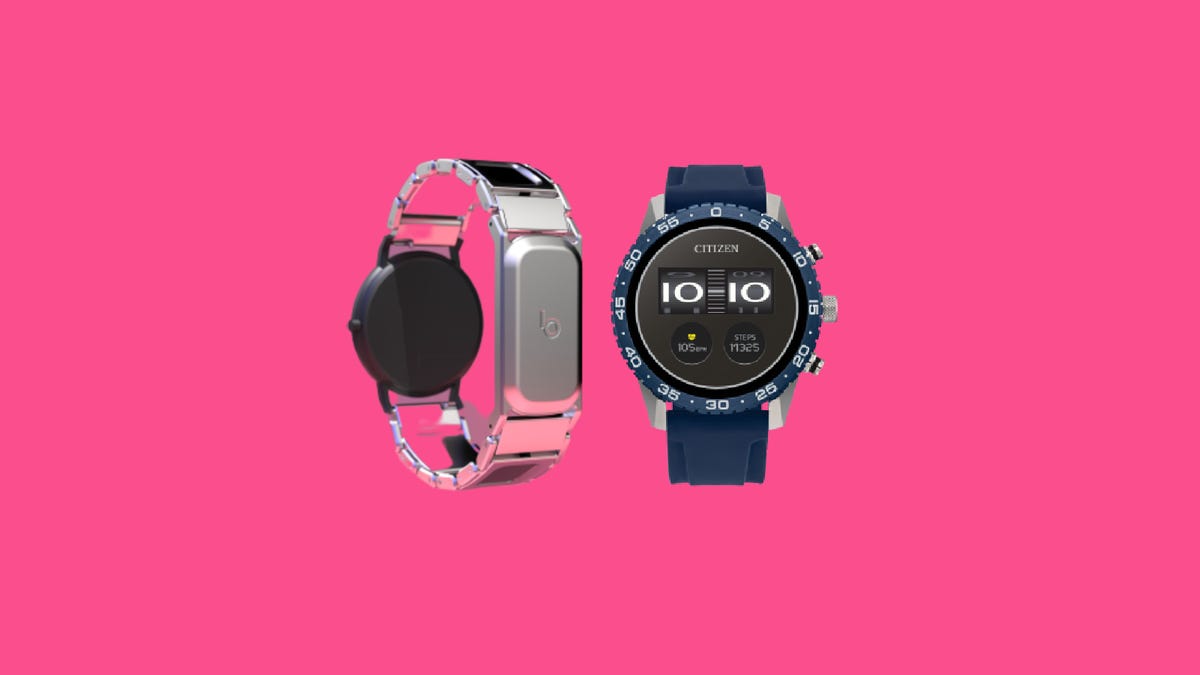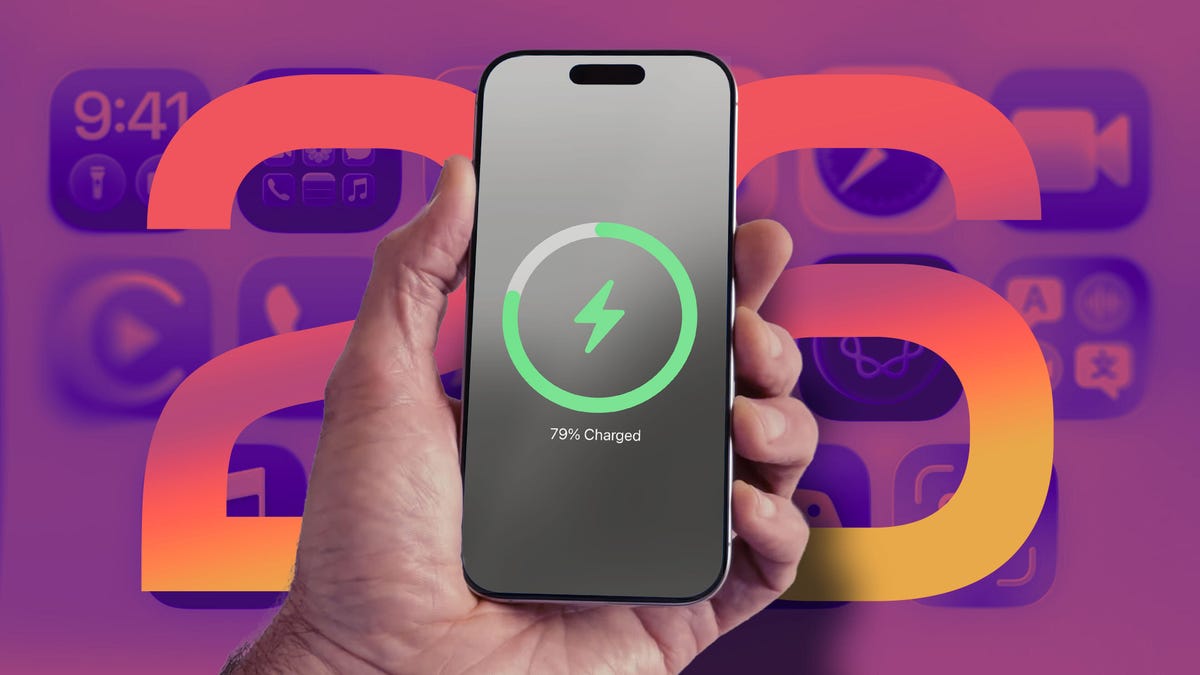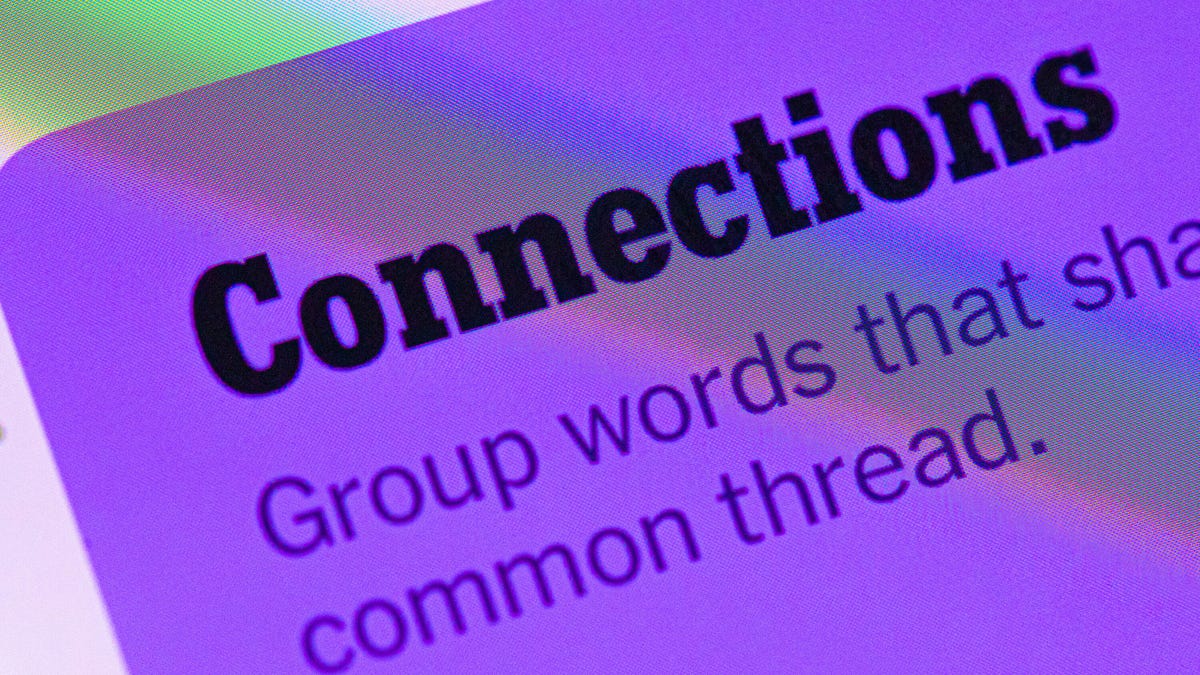Technologies
We’re All Stressed, and Your Next Wearable Will Know It
Your wellbeing was a big focus at CES. Companies showed off smartwatches and fitness bands aimed at tracking your mental health.

Wearables can already track a dizzying number of bodily statistics, from heart rate to blood oxygen levels and skin temperature. If the new devices shown at CES 2023 are any indication, the next wave of smartwatches and wristbands aim to gain a better understanding of your alertness, fatigue and stress levels, too.
Watchmaker Citizen and smaller brands like BHeart and Nowatch have all announced new wearables that claim to pay close attention to your mental wellbeing. The shift toward stress tracking isn’t necessarily new, as I wrote in September when covering Fitbit’s Sense 2 and the Happy Ring. But the announcements at CES suggest that tech companies are interested in monitoring other factors that play into mental wellness.
The launches come as stress has been on the rise in the US because of factors like political divisiveness and inflation in addition to the pandemic, according to a survey conducted by the Harris Poll on behalf of the American Psychological Association.
«Modern life was hard enough with constant technology and ever-present communication and the pace of life,» Dr. Debra Kissen, CEO of the Light On Anxiety Treatment Center, which specializes in cognitive behavioral therapy services, previously said to CNET. «And then throw in a pandemic, and I think it really brought mental health concerns that were always there undeniably to the surface.»
This recent interest in exploring the link between physical and mental wellness also comes as annual smartwatch upgrades aren’t as pivotal as they used to be. Now that smartwatches have matured and the problems that plagued early devices have been addressed, companies large and small are searching for what’s next.
Citizen says its CZ Smart watch can gauge alertness and fatigue
Citizen says its new CZ Smart watch uses tools built based on research from the NASA Ames Research Center Fatigue Countermeasures Laboratory to assess fatigue and alertness levels. One of the biggest features that separates it from other wearables is its Alert Score, which it generates after you take the Alert Monitor test in Citizen’s YouQ wellness app. That test is based on the Psychomotor Vigilance Test that NASA has used to assess astronauts’ alertness.
The watch also wants to help you understand whether you’re a morning or evening person by analyzing your sleep patterns and Alert Scores. The overall goal is to combine these readings with more traditional metrics like heart rate and activity to make suggestions about how to address fatigue and increase your alertness. The «casual» finish starts at $350 (roughly 290, AU$520), while the «sport» edition starts at $375.
The BHeart band is a stress tracker you can attach to a regular watch
Health tech company Baracoda’s BHeart band grabbed headlines for its self-charging design that the company claims uses motion, body heat and sunlight to power itself. But the wristband is also another example of a new wearable attempting to provide mental health insights in addition to tracking physical metrics.
It claims to calculate stress management readings using heart rate variability. The app may suggest that users take a walk or do some yoga to relax based on those readings. Since it’s a watch band and not an actual watch, you can also wear the BHeart strap with any standard watch that has a lug width of 18 to 22 centimeters. The band starts at $100 and launches in April.
The Nowatch claims to estimate stress and cognitive performance
If you couldn’t tell from the name alone, the Nowatch isn’t a watch. It’s a screenless wellness tracker that claims to measure stress and cognitive performance.
The company worked with Philips on sensors that can measure electrodermal activity — or changes in sweat — to estimate stress levels. Fitbit uses similar technology in its Sense and Sense 2 devices. Users can also press the crown on their watch to mark specific stressful moments so that the watch can log it within the app. That sounds a bit different than Fitbit’s approach with the Sense 2, which can automatically flag potential signs of stress in addition to performing on-demand stress readings.
But one of the Nowatch’s more unique offerings is its Predicted Cognitive Zone feature, which the company says can provide insight on the wearer’s cognitive performance based on their physical state.
The Nowatch starts at $499, although the company is temporarily selling it for $369 until Jan. 9.
The next step for wearables
It took years for smartwatches, smart rings and fitness bands to turn sleep and activity data into meaningful insights that actually feel useful. Now, companies are seemingly setting their sights on addressing other factors that impact our health like stress, burnout and lack of sleep.
In addition to the new devices at CES, Fitbit debuted the second generation of its Sense smartwatch last fall — which doubles down on the stress tracking tech it introduced in the first model. Polar also announced the Ignite 3 watch in November, which claims to pinpoint the time of day in which you’ll be most alert based on your sleep cycles. Biogen announced in 2021 that it was collaborating with Apple on a research study to investigate the role that the Apple Watch and iPhone could play in monitoring cognitive performance.
Of course, it’s important to remember that these are just claims for now. It’s impossible to know whether these tools are accurate or useful without using them. The devices also arrive at a time when there’s increased awareness and scrutiny over the amount of data that tech devices gather about their users.
Dr. Charles A. Odonkor, assistant professor at the Yale University School of Medicine, also previously told CNET that changes in bodily markers like heart rate, perspiration and blood pressure may not always indicate stress and could be a sign of other conditions.
Still, the arrival of devices like these suggest that the next frontier for wearables could be about much more than just motivating you to hit the gym.
Technologies
Astronauts Can Now Use the Latest Smartphones in Space
Two upcoming missions could see astronauts using smartphones to capture lunar selfies and more.

Astronauts will now be able to bring modern smartphones on space missions, according to a tweet this week from NASA administrator Jared Isaacman. Isaacman said the policy will begin with SpaceX Crew-12 and Artemis II.
The SpaceX Crew-12 mission is scheduled to launch Feb. 11 and will carry four astronauts to the International Space Station. NASA’s Artemis II mission is expected to launch in March; it will send four astronauts on a 10-day flight that will circle the Moon and return to Earth.
«We are giving our crews the tools to capture special moments for their families and share inspiring images and video with the world,» Isaacman wrote.
NASA astronauts will soon fly with the latest smartphones, beginning with Crew-12 and Artemis II. We are giving our crews the tools to capture special moments for their families and share inspiring images and video with the world. Just as important, we challenged long-standing…
— NASA Administrator Jared Isaacman (@NASAAdmin) February 5, 2026
An Apple representative noted in an email to CNET that this was «the first time [the] iPhone has been fully qualified for extended use in orbit and beyond.»
«Until now, astronauts were largely limited to legacy cameras and older imaging equipment,» the spokesperson said.
NASA did not mention specific phone brands or models in its tweet.
Ars Technica reported that space missions currently use 2016 Nikon DSLR and GoPro cameras.
Photography has played an important role in space missions since the Apollo missions of the 1960s and 1970s. Apollo 11 astronauts, the first humans to step on the moon, captured iconic photographs of their famed July 1969 mission with specially modified Hasselblad cameras.
Technologies
Adaptive Power in iOS 26 Is Boosting Your iPhone Battery in the Background
We all want more battery life in our phones, and a semi-hidden AI setting in the latest iPhone system is helping to achieve that.

Other Apple Intelligence features get all the attention, but in iOS 26 one of my favorite tools does its thing quietly in the background. On iPhone models that are capable of running Apple’s AI tech, the Adaptive Power setting is at work behind the scenes to extend battery power, even on many older iPhones.
Currently, the iPhone uses as much power as it needs to perform its tasks. You can extend battery life by taking a few simple steps, such as reducing screen brightness and disabling the always-on display. Or, if your battery is running low, you can turn on Low Power Mode, which limits background activity, like fetching mail and downloading data, and dims the screen to help extend battery life. Low Power Mode also kicks in automatically when the battery level reaches 20%.
If Low Power Mode is the hammer that knocks down power consumption, Adaptive Power is the scalpel that intelligently trims energy savings here and there as needed. Based on Apple’s description that accompanies the control, the savings will be felt mostly in power-hungry situations such as recording videos, editing photos or even playing games.
Apple says Adaptive Power takes about a week to analyze your usage behavior before it begins actively working. And it works in the background without needing any management on your part.
Here’s how Apple describes it in the iPhone user guide: «It uses on-device intelligence to predict when you’ll need extra battery power based on your recent usage patterns, then makes performance adjustments to help your battery last longer.»
Which iPhone models can use Adaptive Power?
The feature uses AI to monitor and choose when its power-saving measures should be activated, which means only phones compatible with Apple Intelligence get the feature. These are the models that have the option:
• iPhone 17
• iPhone 17 Pro and iPhone 17 Pro Max
• iPhone Air
• iPhone 16 and iPhone 16 Plus
• iPhone 16 Pro and iPhone 16 Pro Max
• iPhone 16e
• iPhone 15 Pro and iPhone 15 Pro Max
Although some iPad and Mac models support Apple Intelligence, the feature is only available on iPhones.
How to turn Adaptive Power on
Adaptive Power is on by default on the iPhone 17, iPhone 17 Pro, iPhone 17 Pro Max and iPhone Air. For other models, you must opt in to use it. In iOS 26, you’ll find the Adaptive Power toggle in Settings > Battery > Power Mode. To be alerted when the feature is active, turn on the Adaptive Power Notifications option.
Adaptive Power sounds like an outgrowth of Gaming Mode, introduced in iOS 18, which routes all available processing and graphics power to the frontmost app and pauses other processes in order to deliver the best experience possible — at the notable expense of battery life.
What does this mean for your charging habits?
Although we all want as much battery life as possible all the time, judging by the description, it sounds as if Adaptive Power’s optimizations will not always be active, even if you leave the feature on. «When your battery usage is higher than usual» could include a limited number of situations. Still, considering that according to a CNET survey, 61% of people upgrade their phones because of battery life, a feature such as Adaptive Power could extend the longevity of their phones just by updating to iOS 26.
I also wonder whether slightly adjusting display brightness could be disruptive, but in my experience so far, it hasn’t been noticeable. Because the feature also selectively de-prioritizes processing tasks, the outward effects seem minimal. When it’s activated on my iPhone 16 Pro, the only indication was the Adaptive Power alert that appeared.
We’ll get a better idea about how well Adaptive Power works as more people adopt iOS 26 and start buying new iPhone models. Also, remember that shortly after installing a major software update, it’s common to experience worse battery life as the system optimizes data in the background; Apple went so far as to remind customers that it’s a temporary side effect.
Technologies
Today’s NYT Connections Hints, Answers and Help for Feb. 7, #972
Here are some hints and the answers for the NYT Connections puzzle for Feb. 7 #972

Looking for the most recent Connections answers? Click here for today’s Connections hints, as well as our daily answers and hints for The New York Times Mini Crossword, Wordle, Connections: Sports Edition and Strands puzzles.
Today’s NYT Connections puzzle is super-tricky. You’ll need to know your symbols to match them up accordingly. Read on for clues and today’s Connections answers.
The Times has a Connections Bot, like the one for Wordle. Go there after you play to receive a numeric score and to have the program analyze your answers. Players who are registered with the Times Games section can now nerd out by following their progress, including the number of puzzles completed, win rate, number of times they nabbed a perfect score and their win streak.
Read more: Hints, Tips and Strategies to Help You Win at NYT Connections Every Time
Hints for today’s Connections groups
Here are four hints for the groupings in today’s Connections puzzle, ranked from the easiest yellow group to the tough (and sometimes bizarre) purple group.
Yellow group hint: Roll those bones.
Green group hint: Math time.
Blue group hint: A comma is one.
Purple group hint: Not uppercase.
Answers for today’s Connections groups
Yellow group: Pips on a die.
Green group: Symbols used in arithmetic.
Blue group: Punctuation marks.
Purple group: Lowercase letters.
Read more: Wordle Cheat Sheet: Here Are the Most Popular Letters Used in English Words
What are today’s Connections answers?
First, here’s that grid full of symbols again.
And here are the answers, sorted into groups.
The yellow words in today’s Connections
The theme is pips on a die. The four answers are five, four, three and two.
The green words in today’s Connections
The theme is symbols used in arithmetic. The four answers are divided by, equals, minus and plus.
The blue words in today’s Connections
The theme is punctuation marks. The four answers are colon, ellipsis, period and quotation mark.
The purple words in today’s Connections
The theme is lowercase letters. The four answers are I, L, T and X.
-

 Technologies3 года ago
Technologies3 года agoTech Companies Need to Be Held Accountable for Security, Experts Say
-

 Technologies3 года ago
Technologies3 года agoBest Handheld Game Console in 2023
-

 Technologies3 года ago
Technologies3 года agoTighten Up Your VR Game With the Best Head Straps for Quest 2
-

 Technologies4 года ago
Technologies4 года agoBlack Friday 2021: The best deals on TVs, headphones, kitchenware, and more
-

 Technologies5 лет ago
Technologies5 лет agoGoogle to require vaccinations as Silicon Valley rethinks return-to-office policies
-

 Technologies5 лет ago
Technologies5 лет agoVerum, Wickr and Threema: next generation secured messengers
-

 Technologies4 года ago
Technologies4 года agoOlivia Harlan Dekker for Verum Messenger
-

 Technologies4 года ago
Technologies4 года agoiPhone 13 event: How to watch Apple’s big announcement tomorrow
